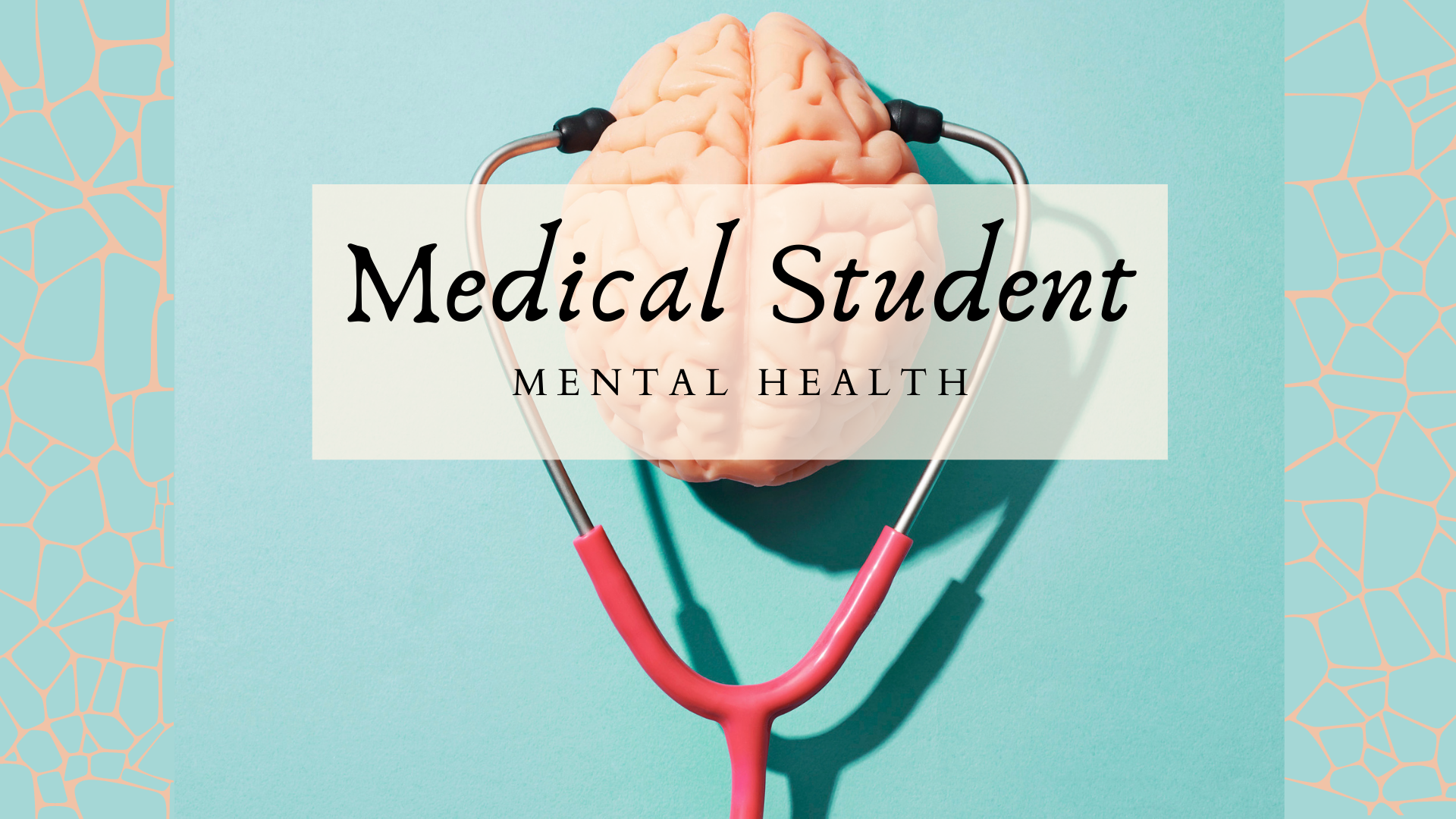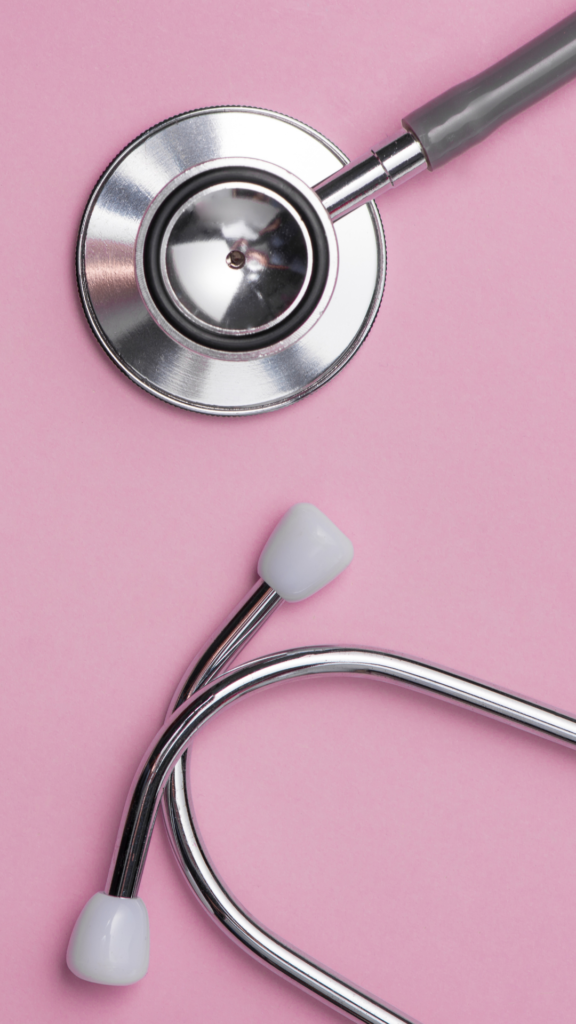Medical Students Mental Health – is this still taboo?!
The COVID-19 pandemic has affected everyone's mental health in one way or another. The mental health of medical students is no exception.

The COVID-19 pandemic has affected everyone’s mental health in one way or another. The mental health of medical students is no exception.
Why are university students generally so vulnerable?
University students are vulnerable to mental health problems, however COVID has tremendously exacerbated this.

- Many have moved away from the comforts of their homes for the first time. Living independently is a steep learning curve. This is even more so for international students who have moved continents in order to study their course.
Imagine then not being able to leave your 4 walls to see friends, family, and have the expected University social experience..
- Increased responsibility for themselves and their lives.
Imagine not being able to share the experience with other students, to seek peer support on this journey.
- Type of learning changes from teacher-initiated to self-learning. This is a huge change for many going to uni.
Imagine not knowing whether your studying style is effective or not. Imagine not being able to share this experience with peers.
- Exploring who they are and where they fit into the world. This is a journey, and a journey where interaction with people and the world is crucial.
Imagine not having the freedom to learn about you, and where you fit into the world.
- Some students have other responsibilities or commitments, for example caring for relatives or as parents/guardians. Juggling both worlds including your own wellbeing can be tough, and has most certainly been a hindrance for many in even applying to study for a course.
- The most at risk students are second and third year students.

What different factors can affect medical students mental health?
Medical students are a niche group of students for a variety of reasons. These factors may influence, or even increase their risk of mental health problems, in comparison to other university students.
- A medical degree course length is much longer (at least 5 years) versus other undergraduate courses (minimum 2-3 years). This often means medical students may integrate less easily with other students.
- The term times are often not in sync with the rest of university’s term time.
- Their exposure to the real world is very quick and premature. Medical students exposure to adversities throughout clinical placements is so vast, that their non-medical peers may never see. From exposure to palliative patients, death, cancer, and the working environment of a busy clinical place. The latter we know, has its own pitfalls.
- Financially medical students are worse off than their peers. The Royal Medical Benevolent Fund surveyed medical students, and their findings are stark. Almost 70% reported unanticipated financial costs when starting medical school, and over 50% of students need to work to finance their studies. Most students rely on their parents/guardians for financial support, and almost 3/4 feel this affects their mental health adversely.

- There is significant stigma amongst the medical profession as a whole in seeking mental health support. Unfortunately, this problem mirrors in the medical student population. In a survey done by the BMJ, at least one third of medical students report mental health problems. Of those who sought help, the majority deemed the help available as inadequate or poor.
The effect of COVID-19 pandemic on the mental health of medical students.
Some challenges faced by many medical students are unique, however others are similar challenge to those of other students.
Reduced clinical exposure
Due to the pandemic, medical students’ placements plans have changed. This clinical exposure, crucial for their learning, has been impacted.

The Need to Be Dynamic – Embracing even more Virtual Learning
Learning in very diverse environments made studying medicine unique. From the bustling busy wards, to the comforts of small group facilitation. COVID-19 has thrust such hazards that teaching safely is a huge concern. Most lectures and small group learning are now virtual.
There are huge concerns for students, who are already more isolated living alone in very small bubbles (if any). Students are more likely to disengage. The watchful eye of a facilitator who could pick up on hints/cues of difficulties faced by the student, is now limited.
Stepping Up For Duty – too soon?
Once upon a time (in 2012) as an enthusiastic final year medical student, I didn’t feel FULLY prepared to leap into the land of uncertainty and responsibility. I do ponder on how I would have felt if I was qualifying during COVID-19 times.
A recent survey by Choi, B et al (2020) demonstrated that the qualifying medical doctors of 2020 have felt significantly less well equipped. This makes me worry! Many students have found themselves in situations where they have felt obliged to perform tasks that is outside their competence. The Medical Schools Council have provided supportive guidance for all NHS trusts to follow. This aims to protect and give confidence to medical students to challenge these situations.
Increase in Mental Health Problems
A study in India looking at Medical Students has demonstrated an increase in mental health problems, particularly anxiety and depression. These concerns are echoed in the UK, however need to be studied further.

Tips for Mental Wellbeing
It is crucial in this time of uncertainty for medical students to feel supported by their colleagues. They should not fret seeking help for their mental health. Their mental wellbeing is vital for them to be able to serve their duties sustainably. Beyond this, living a fulfilling life with a fulfilling career is key.
Student Minds, the NHS website and the BMA have compiled a great suggestion of tips. These have been amalgamated and summarised below.
Stick To A Routine
This great paper by Arlinghaus and Johnston (2019) summarises the evidence behind having routines and helping our mental wellbeing. So from what time you wake up and go to sleep, to changing your clothes before sitting down with your laptop open to get on with online learning.. they are all so helpful.
Look After Your Physical Health
It is often difficult to take notice of your physical health when mentally, you just don’t feel up to it. But taking some time out to do this can be so rewarding, and is scientifically proven. This article by the Mental Health Foundation goes into this in more detail. Things you may want to consider are:
- What you eat – eating your “5 a day” will give you the right fuel for your body. This will help you look and feel better about yourself.
- Exercise – many people freak out about this. Exercise does not mean prepping for the London Marathon. Any physical activity that exerts you, from briskly walking to your placement, or a short jog around your local park. You can read more about this on the NHS website.

Stay Present – Mindfulness
Medical students are a cohort of people who have always been running. Towards their aspirations, and working to the next hurdle/goal. As a result it’s difficult to stop and be present! Whether that is feeling the ground underneath your feet, focusing on breathing, or working on a gratitude journal to remind yourself of the positives of the day. Evidence suggests these help maintain good mental health!
This can as simple as closing your laptop, and going for a walk in between studying. Remember your 5 senses… what you see, feel, smell, hear, and taste. (Well perhaps not taste, unless you manage a cuppa on your break!)

Stay Connected
Now this can seem really tough, and somewhat patronising and pedantic. With the fleeting changes in restrictions, lockdown rules etc, it is not easy to stay connected with others. Technology has been really helpful!
Whether its staying connected with loved ones on whatsapp, having regular video chats, or the dreaded Zoom weekly quiz night… any connection is better than no connection.

Connect with something you love.
We are all feeling overwhelmed, medical students included. Learning something new or even picking up an old hobby that used to make you feel great, is tricky.
Taking out even 30 minutes in a day to do something that takes your mind away from your daily rigmaroles, has great evidence to improve wellbeing.
Know where to seek help from.
Be aware of your chain of help/support from your University and Medical School. Most facilitators and teaching staff will be able to support you, so please don’t shy away from reaching out to them. It is more difficult to pick up the usual cues of a struggling medical student.
The GMC are really supportive of medical students who may encounter mental health problems. Their leaflet (which I think all students should have access to!) summarises their guidance/recommendations for supporting mental health problems in medical students. In addition to providing reassurance that students will incredibly supported by them, but also in the event of any discrimination that may be faced. They have zero tolerance for the latter!
Interestingly a really insightful study done at the University of Cambridge found that early access to intervention can greatly improve functioning and outcomes of medical students in their journey to becoming doctors. They are hoping their study paves the way for other medical schools to follow.
Whether it is struggles with workload, placements, your mental health or anything else. If there is one thing you take away from this.. please please speak to someone.

Where can medical students get help from for their mental health?
First and foremost, if you are struggling with your mental health you should consult with your registered GP or 111 outside of GP surgery opening times. To maintain patient safety during the pandemic, you may initially consult with them by telephone or video consultation. Then, a face-to-face meeting can be arranged if necessary.
If you are having thoughts of self harm or suicide, please ensure you call 999 or contact your local access/crisis team (can be found via a search engine)
There are many charities and organisations that are helping students who are struggling, with their mental health as a whole or aspects of it. These include:
- NHS Psychological Therapies Service (IAPT)
- BMA Wellbeing – For Medical Students (free for members)
- The Royal Medical Benevolent Fund – a charity to help Doctors and Medical Students, and their families.
- MIND – a great charity encompassing all things that can affect mental health.
- Charities, specifically for Students/Young People
- Student Space
- Student Minds
- Papyrus – Suicide Prevention Charity
- Young Minds – Children & Young People’s Mental Health Charity
- No Panic – Charity for those suffering from Anxiety/Panic Attacks
- GamCare – For those with gambling problems
- Action on Addiction – For those who are struggling with addictions.
You can also check out the Medic Footprints Wellbeing Support page here. Many of the listed resources for doctors will also cater for medical students.
Take Home Message
You are not alone. Mental health problems are more common than before. Do not live in shame or fear. As you have read, the earlier you seek help, the quicker you will recover.
For friends/loved ones of medical students who are concerned about their mental health, please stay connected with them. If you very worried about them, you can contact the above services too including the emergency services.

Zirva Khan
Latest posts by Zirva Khan (see all)
- Medical Students Mental Health – is this still taboo?! - 4th February 2021
- The Armitage Foundation – Rising Above My Postcode - 12th September 2020
- The patients I am most fearful for in the Covid-19 pandemic - 27th May 2020


